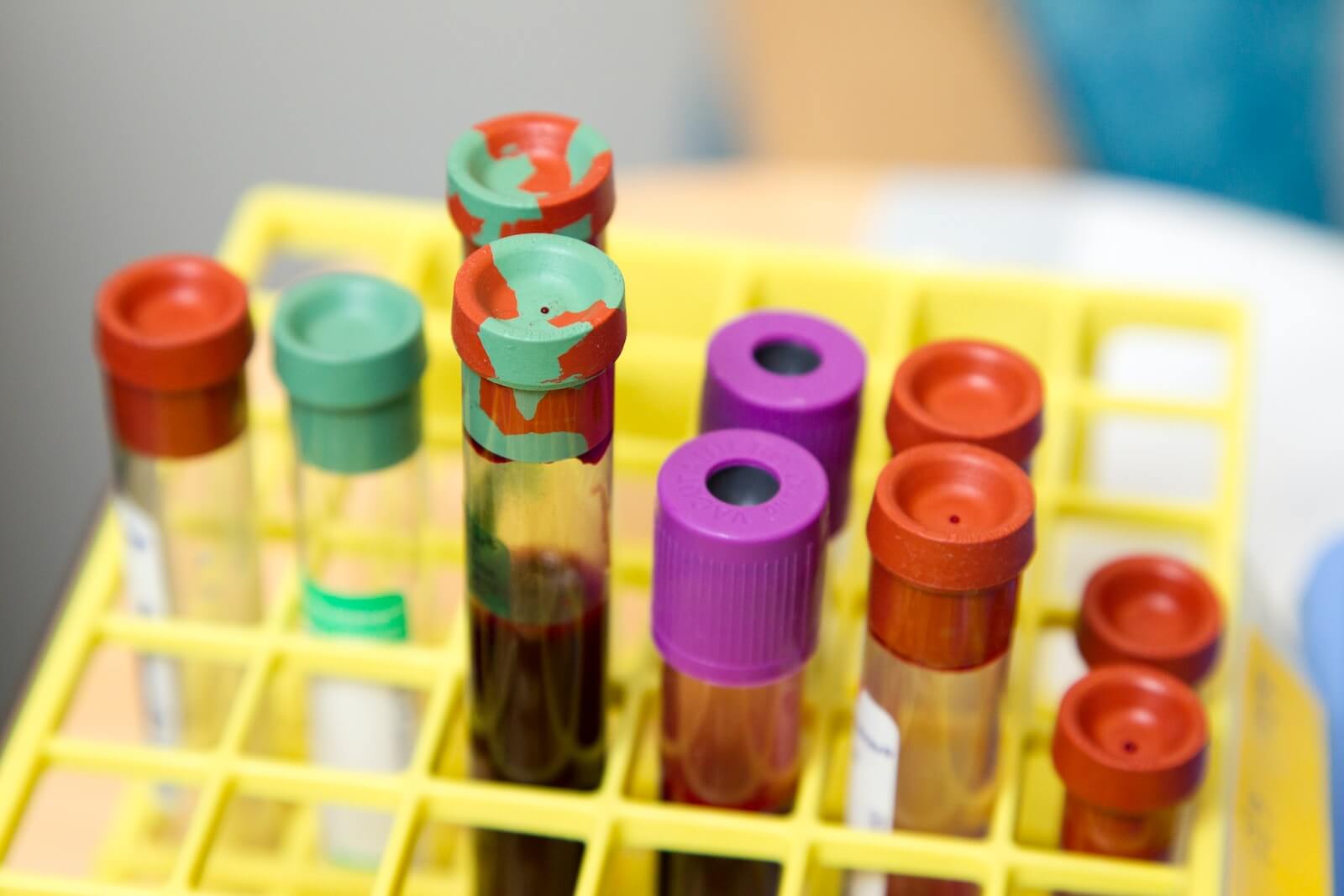FTC disclaimer: This post may contains affiliate links and we will be compensated if you click on a link and make a purchase.
It can be quite daunting to make sense of abnormal full-blood count results. But it’s essential to know what these results could signify as they might point towards more serious hematological conditions.
In this article, we’ll run through the basics of full blood counts (FBCs), possible implications an odd result may have, and common symptoms associated with various types of hematological disorders.
Taking a little time out to comprehend FBCs and CBC test outcomes would enable you to take a proactive stance regarding your health – how is that for taking charge?
Understanding Abnormal FBC and its Significance in Blood Counts
A full blood count (FBC) is one of the most crucial tests you can take. It checks up on your red and white blood cells to see their health, giving insight into overall wellness.
FBCs help detect issues in production or composition such as anemia, infections, or even cancer – all by assessing a person’s hemoglobin level and platelet & red cell counts!
This test makes it easier to spot abnormalities that might otherwise have gone unnoticed until more severe symptoms arise.
The full Blood Count test result is abnormal.
If the results of a full blood count test come back abnormal, it could be due to various conditions. These can range from chronic illnesses such as kidney disease to something that’s less serious, like an iron deficiency.
It primarily looks at elements within our body, including
- Hemoglobin, which carries oxygen in the blood
- Platelets for clotting
- Red and white blood cells are used by our immune system, respectively
Albumin levels, hematocrit counts, and other electrolytes are checked during this process.
So if any irregularities are noticed during these tests, then we need to act accordingly depending on what they find out.
What does an abnormal result on a blood test mean?
An abnormal result on a blood test could mean lots of different things – it might show that there is an infection present, or it may indicate someone has an autoimmune disorder.
So, discussing this with your doctor is the right thing to do before making hasty decisions.
But if you get strange results during a full workup, further tests will need quick action to identify what’s happening. Rhetorical question: What kind of additional tests should one have when receiving abnormal lab results?
Things to remember about the blood test
It’s important to remember that some people have a higher or lower amount of different elements in their body due to genetics – for instance, certain ethnicities tend to have less hemoglobin than most.
This doesn’t necessarily mean something is wrong if they’re out of the range classified as “normal.”
That’s why it’s essential not only to know what your own “typical” levels are but also to recognize how they change during various occasions or events-for example when someone takes iron supplements, you’d expect their hemoglobin level will rise after a while.
To make sure this actually happened, you can do regular checkups on FBC results. Even though one person may not reach normal values precisely, it might still be fine since those parameters differ from individual awareness of these factors then becomes paramount!
Is there any other way we could monitor our health? How else would changes show up in tests before getting serious?
Interpreting CBC Results to Identify Abnormal Blood Levels
When it comes to abnormal CBC results, it can be complicated. Understanding lab results is not an easy task, so having a good idea of what your doctor is looking for in interpreting these findings helps.
A complete blood count (CBC) test provides three categories:
- Red cell indices
- White cell indices
- Platelet values.
Red cell counts
Red cells transport oxygen through our body, which is made from marrow inside bones – how amazing!
Knowing your red cell counts is important to monitor the amount of oxygen released into your bloodstream.
It indicates whether our blood production and oxygen delivery throughout the body are functioning properly, so we know if something wrong needs addressing.
White cell count
Similarly, measuring white cell count helps track how well our bodies protect themselves from external attacks like bacteria and viruses and eliminate dead cells for new tissue cells to replace them – ensuring good health overall.
Abnormal white cell counts might suggest that there’s an infection or inflammation lurking somewhere in the body.
On top of that, if those levels are high, it could mean your immune system is working hard to tackle something particular.
Platelets
Platelets are critical when we need them most: they assist with clotting blood and prevent too much bleeding from cuts and injuries.
A low platelet count may be because production within the bone marrow has been hindered; not getting enough vitamin nutrients can also lead to this, as well as certain diseases like cancer, HIV/AIDS, etc. So it pays off to take care of ourselves – especially our diets!
Conversely, high levels might signal that you have an infection or a disorder that influences platelet function.
Suppose your CBC results come back with strange numbers. In that case, it can be extremely nerve-wracking. However, if you understand what they stand for, then both doctor and patient can detect any problems earlier before they become more serious health issues eventually.
It’s essential not to see CBC tests as definitive answers; rather, think of them as one piece in the bigger puzzle where other means should help diagnose potential causes and decide on the best treatment plan available.
Anemic Symptoms Indicative of Abnormal Full Blood Count
Health is something we should always take seriously. If you have a medical test or blood test done, and the results come back abnormal, it’s very important to understand what this could mean for your health.
A ‘full blood count’ is a specialized test that checks levels of red and white cells in our body – from minor variations up until serious conditions can be seen through these readings. So it’s not something to ignore!
Hemoglobin and Hematocrit levels
This tests if your hemoglobin and hematocrit levels are in the healthy range.
If not, it could mean you have anemia – a condition that’s caused by insufficient iron intake or illnesses like cancer or kidney failure.
So why is anemia so dangerous?
When left untreated, it can result in more severe health issues such as heart problems and fatigue.
Classic symptoms of Anemia
If you suffer from anemia, a few classic symptoms should raise the alarm about your red cells.
These can include
- Feeling extremely fatigued after putting in minimal physical effort
- Struggling to focus due to a lack of energy levels
- Becoming dizzy or light-headed when abruptly standing up from either sitting down or lying down position
- The skin turns pale as less oxygen is being carried around by hemoglobin, with lower-than-usual amounts of it present
- Shortness of breath during any kind of activity because your heart needs to beat faster so oxygenated blood can reach further parts of your body fast enough.
Other Symptoms
Other indications can be headaches caused by reduced flow of oxygen and heavy menstrual bleeding alongside cravings for non-nutritional items such as ice cubes or dirt (which is known as pica).
All these signs might point toward the presence of anemia – have you consulted a medical professional yet?
Getting regular full blood counts is a great idea if you’re feeling any of the symptoms these tests can detect.
Early Indication of Abnormal Full Blood Count
Catching an abnormality early on with one of these tests could save you from much more serious issues further down the line, like chest pain related to heart failure—it’s better to be safe than sorry!
There are usually treatments available for whatever caused your abnormal readings, too, so it might not take long at all before those pesky symptoms disappear and everything goes back to normal.
Taking preventative measures now by having periodic checkups definitely pays off in the end – think how much headache (and body ache!) it will save you later on!
Different Hematological Disorders Causing Abnormal FBC
An abnormal full-blood count can be a sign of a hematological disorder.
A hematological disorder is when there’s something wrong with the formation and function of your red blood cells, white blood cells, platelets, or clotting factors.
Anemia
The most common one you have probably heard about is Anemia – but plenty more could affect how your FBC looks, too!
For example, some types of leukemias and lymphomas often cause higher than normal levels of white cell counts in the body, so if this happens to you, it might be worth getting checked out by a doctor.
Blood Clotting and Bleeding
Disorders related to platelets, blood clotting, and bleeding can result in changes to the full blood count (FBC) results.
Thrombocytopenia or thrombocytosis
Thrombocytopenia or thrombocytosis affects how many platelets are present, while hemophilia, von Willebrand disease, and other similar disorders impact coagulation factors.
Autoimmune diseases like lupus or vasculitis
Autoimmune diseases like lupus or vasculitis may also influence all types of cells throughout the body.
Treatment of hematological disorder
Treatment for these conditions often requires tailored approaches based on their cause and severity;
Anemias typically need iron supplementation to replace depleted levels of hemoglobin.
Autoimmune issues usually require immunosuppressive drugs such as steroids, which help reduce inflammation within one’s body.
In contrast, cancerous illnesses such as leukemia & lymphoma normally involve chemotherapy/ radiation therapy, destroying malignant cells before they spread out further.
Platelet disorders might necessitate medication that either increases production of what is too low -or lowers numbers when it gets too high- .
Doctors will investigate any abnormal FBC values beyond just this test itself – such as biopsy tests or imaging scans– providing a starting point for diagnosing hematological afflictions with the greatest accuracy& clarity possible.
Prevention and Management Strategies for Abnormal Blood Counts
If your full blood count is abnormal, it could signify that something else might be going on with your health.
Abnormal results can involve changes in any part of the cell – such as red blood cells, which are responsible for carrying oxygen throughout our body. These white blood cells help to fight off infection and platelets, which aid clotting.
Depending on what has caused or triggered this abnormality, a person’s blood counts may indicate they have anemia or leukemia.
Anemia occurs when the body doesn’t produce enough healthy red blood cells. At the same time, leukemia is a cancer that affects how white-blood cells grow and develop within us.
Lifestyle changes
Abnormal blood counts could indicate something minor, like dehydration or lack of vitamins. Luckily, these problems are easy to manage and prevent with lifestyle changes – drinking more water and eating nutrient-rich foods such as fruits and veggies.
Suppose food absorption is an issue due to digestive issues like irritable bowel syndrome (IBS). In that case, your doctor may recommend taking iron pills or supplements to replenish the iron levels in your body.
Long-term treatment plans
In case there’s an underlying medical condition causing abnormal blood counts, it’s essential that you partner up with a healthcare provider to come up with suitable long-term treatment plans, which may include medications for suppressing symptoms, therapies such as radiation therapy/chemotherapy targeted at cancer-related irregularities; stem cell transplantation in severe cases, e.g., leukemia etcetera.
Besides checkups regularly with a physician, modifications in one’s nutrition & exercise can also help look after this health matter over time. How? By ensuring proper dieting& exercising regimes!
The Bottom Line
In conclusion, abnormal full blood count results should be taken seriously. They can suggest a possible underlying health issue, and it is important to get further investigation done.
Especially when considering anemia – one of the most common hematological disorders connected with FBC abnormalities – its symptoms range from minor to very severe, so if you start noticing any unusual signs or sensations after having your FBC tested, medical help must be sought immediately.










